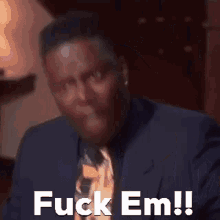Nearly 14,000 in SC have died during the COVID pandemic. Here's one family's story.
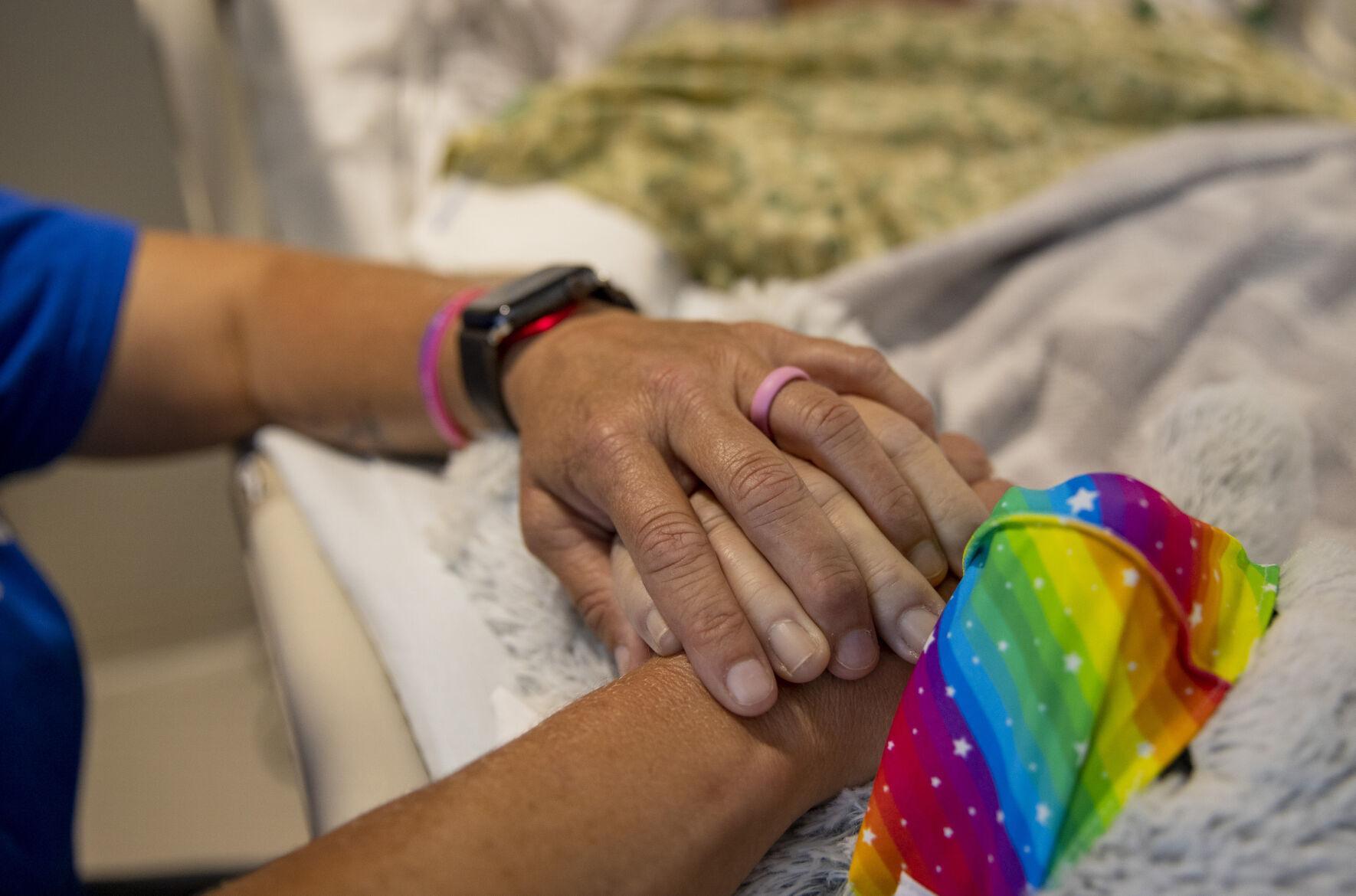
Often, it would prefer to curl up under the covers and go to sleep. Grief loves sleep.
But not at night. That’s not how Jenny Lawson’s grief works.
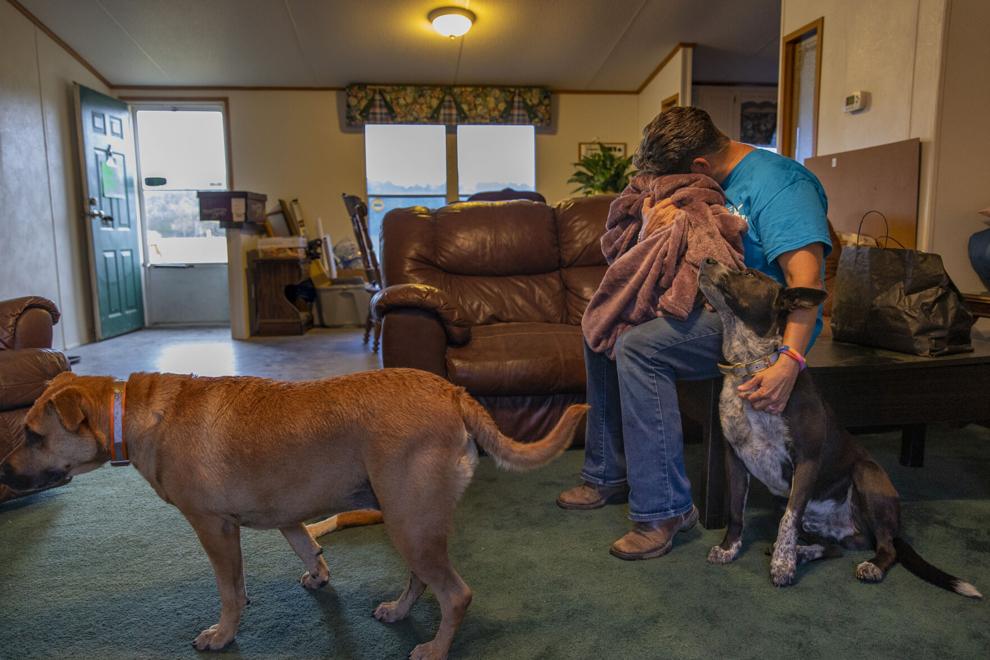
“This is the hardest journey I have been on in my 47 years of life. It didn’t have to be a life lesson,” Jenny Lawson said. She is seen here taking a moment to be comforted by her dogs, Colt (right) and Austin, while holding onto the blanket her wife Becky died in after a two-month battle with COVID-19. Jenny brought her wife’s ashes home on Oct. 6, 2021, from the funeral home in Walterboro. Over the last few weeks, Jenny has been surrounded by people who care about her. Friends and family are helping out with the farm, making sure Jenny has everything she needs. The times she is completely alone are the hardest for her. Andrew J. Whitaker/Staff
Lately, Jenny has logged most of her sleeping hours during the day. A long stretch between 5 a.m. and noon. Another after lunch. She exclusively uses the guest bedroom. She can’t sleep in the same master bedroom that she once shared with her wife Becky.
This was their home, their dream. They bought a tract of 27 acres in rural Dorchester County three years ago and named it WishWeHadda Farm.
Wish we had a farm.
But now Becky Lawson is gone.
Becky died from COVID-19 on Sept. 27, one of nearly 14,000 people in South Carolina who have been killed by the coronavirus since the start of the pandemic.
She was 50 years old. Vibrant. Cherished by many. Life of the party. A presence, one friend called her.
Becky loved music and barrel racing and the Charleston Pride community. She loved children, horses and dogs.
She was also unvaccinated.
So was Jenny. They’d talked about getting their shots. They weren’t opposed to the idea politically.
But they were pretty sure they’d already come down with COVID more than a year ago. Their doctor suspected so, too, even though a test never confirmed it. The Lawsons figured those antibodies would probably protect them from catching the virus again. There was always so much to do around the farm. Getting vaccinated was simply low on their priority list.
“Beck’s mom was trying to nudge her to go get it done,” Jenny said. “We intended on going. We just never got that far. Time got away.”
This is Jenny’s biggest regret, the one she dwells on every day.
Of course, grief and regret are old friends.
This is only one family’s story. But Jenny’s grief offers a glimpse into thousands of other ravaged homes, a window into the way those left behind are pulling their lives together and attempting to find meaning after COVID’s third surge wreaked such a wide wake of destruction.
“I don’t even know where I’m at,” Jenny said. “I’m just on autopilot.”
But autopilot only works part of the time, because grief demands to be acknowledged. It wants answers. It needs a reason.
“It’s been one of my biggest motivators,” Jenny said, convincing her circle of friends to get the vaccine. Jenny herself was vaccinated only after Becky became hospitalized.
“Don’t do this to your family,” she said. “It’s about life and death.”
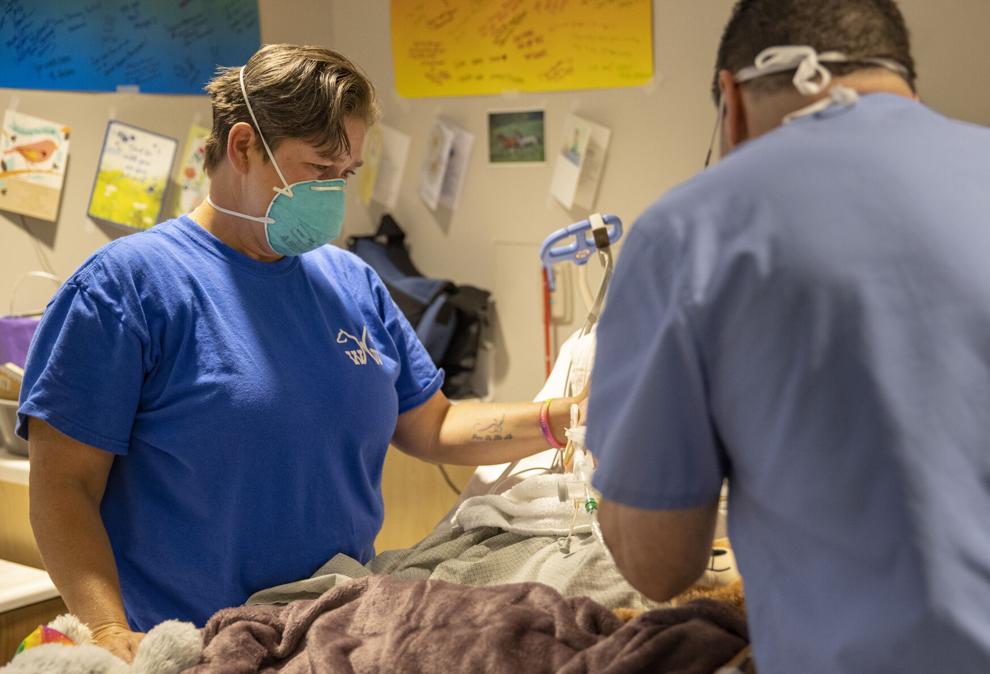
After receiving her second COVID-19 vaccine, Jenny Lawson finds her wife struggling from fighting COVID-19 on Sept. 21, 2021, at Summerville Medical Center. Jenny comforts her wife Becky as her doctor checks in on her. Later that day, Jenny went live on Facebook, describing how Becky’s kidneys were failing and her heart was becoming weaker and weaker. Becky died on Sept. 27, 2021. Andrew J. Whitaker/Staff
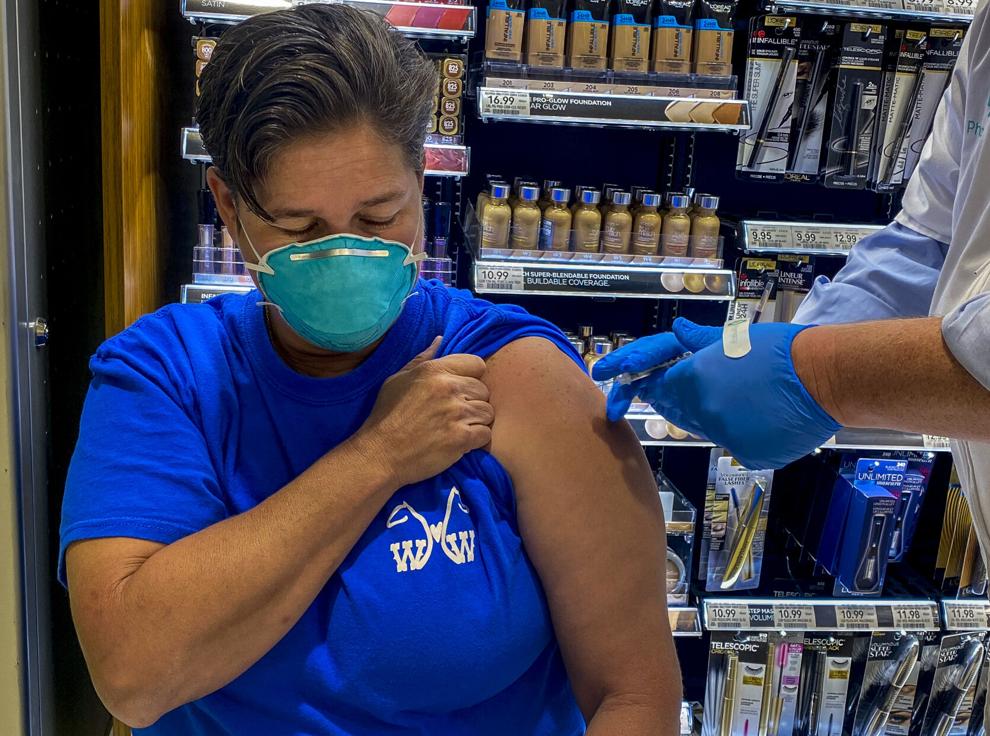
“When I saw the emergency contact on the consent form I began to cry. Becky was my contact,” Jenny Lawson said as she got her second COVID-19 vaccine shot on Sept. 21, 2021, in Summerville. Jenny was getting her vaccine before heading to the Summerville Medical Center to visit her wife who was in a medically induced coma fighting COVID-19 since early August. The two were unvaccinated before Becky got COVID and it took her going into the ICU for Jenny to understand the dangerous effects of this virus. “Get vaccinated.” Jenny said. “COVID does not discriminate. Rich or poor, you are not invincible.” Andrew J. Whitaker/Staff

- Text by Lauren Sausser Photos by Andrew Whitaker
- Nov 5, 2021
Often, it would prefer to curl up under the covers and go to sleep. Grief loves sleep.
But not at night. That’s not how Jenny Lawson’s grief works.

“This is the hardest journey I have been on in my 47 years of life. It didn’t have to be a life lesson,” Jenny Lawson said. She is seen here taking a moment to be comforted by her dogs, Colt (right) and Austin, while holding onto the blanket her wife Becky died in after a two-month battle with COVID-19. Jenny brought her wife’s ashes home on Oct. 6, 2021, from the funeral home in Walterboro. Over the last few weeks, Jenny has been surrounded by people who care about her. Friends and family are helping out with the farm, making sure Jenny has everything she needs. The times she is completely alone are the hardest for her. Andrew J. Whitaker/Staff
Lately, Jenny has logged most of her sleeping hours during the day. A long stretch between 5 a.m. and noon. Another after lunch. She exclusively uses the guest bedroom. She can’t sleep in the same master bedroom that she once shared with her wife Becky.
This was their home, their dream. They bought a tract of 27 acres in rural Dorchester County three years ago and named it WishWeHadda Farm.
Wish we had a farm.
But now Becky Lawson is gone.
Becky died from COVID-19 on Sept. 27, one of nearly 14,000 people in South Carolina who have been killed by the coronavirus since the start of the pandemic.
She was 50 years old. Vibrant. Cherished by many. Life of the party. A presence, one friend called her.
Becky loved music and barrel racing and the Charleston Pride community. She loved children, horses and dogs.
She was also unvaccinated.
So was Jenny. They’d talked about getting their shots. They weren’t opposed to the idea politically.
But they were pretty sure they’d already come down with COVID more than a year ago. Their doctor suspected so, too, even though a test never confirmed it. The Lawsons figured those antibodies would probably protect them from catching the virus again. There was always so much to do around the farm. Getting vaccinated was simply low on their priority list.
“Beck’s mom was trying to nudge her to go get it done,” Jenny said. “We intended on going. We just never got that far. Time got away.”
This is Jenny’s biggest regret, the one she dwells on every day.
Of course, grief and regret are old friends.
This is only one family’s story. But Jenny’s grief offers a glimpse into thousands of other ravaged homes, a window into the way those left behind are pulling their lives together and attempting to find meaning after COVID’s third surge wreaked such a wide wake of destruction.
“I don’t even know where I’m at,” Jenny said. “I’m just on autopilot.”
But autopilot only works part of the time, because grief demands to be acknowledged. It wants answers. It needs a reason.
“It’s been one of my biggest motivators,” Jenny said, convincing her circle of friends to get the vaccine. Jenny herself was vaccinated only after Becky became hospitalized.
“Don’t do this to your family,” she said. “It’s about life and death.”

After receiving her second COVID-19 vaccine, Jenny Lawson finds her wife struggling from fighting COVID-19 on Sept. 21, 2021, at Summerville Medical Center. Jenny comforts her wife Becky as her doctor checks in on her. Later that day, Jenny went live on Facebook, describing how Becky’s kidneys were failing and her heart was becoming weaker and weaker. Becky died on Sept. 27, 2021. Andrew J. Whitaker/Staff

“When I saw the emergency contact on the consent form I began to cry. Becky was my contact,” Jenny Lawson said as she got her second COVID-19 vaccine shot on Sept. 21, 2021, in Summerville. Jenny was getting her vaccine before heading to the Summerville Medical Center to visit her wife who was in a medically induced coma fighting COVID-19 since early August. The two were unvaccinated before Becky got COVID and it took her going into the ICU for Jenny to understand the dangerous effects of this virus. “Get vaccinated.” Jenny said. “COVID does not discriminate. Rich or poor, you are not invincible.” Andrew J. Whitaker/Staff
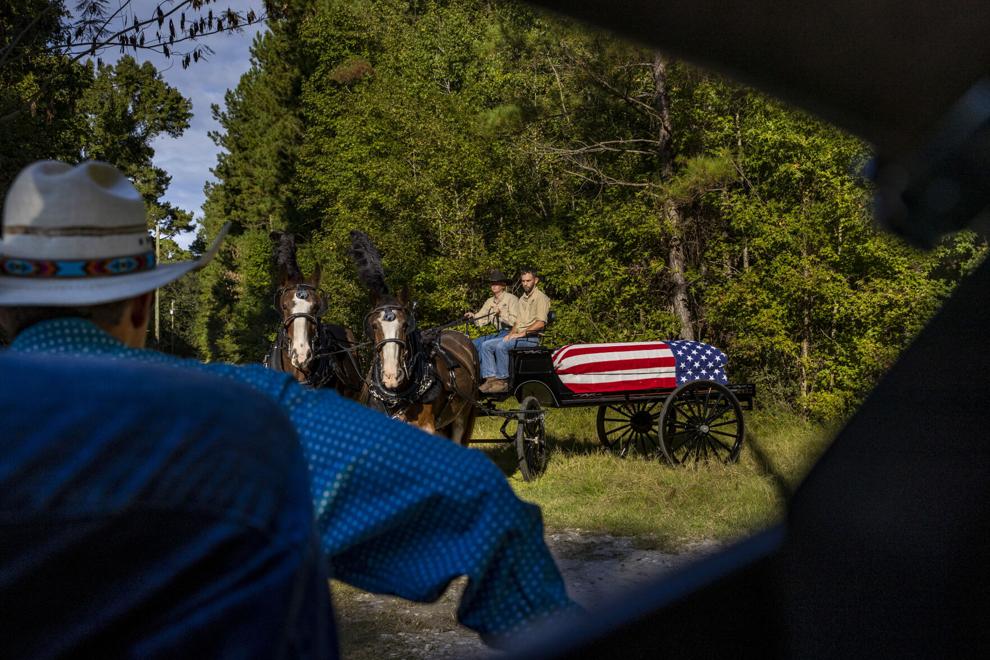
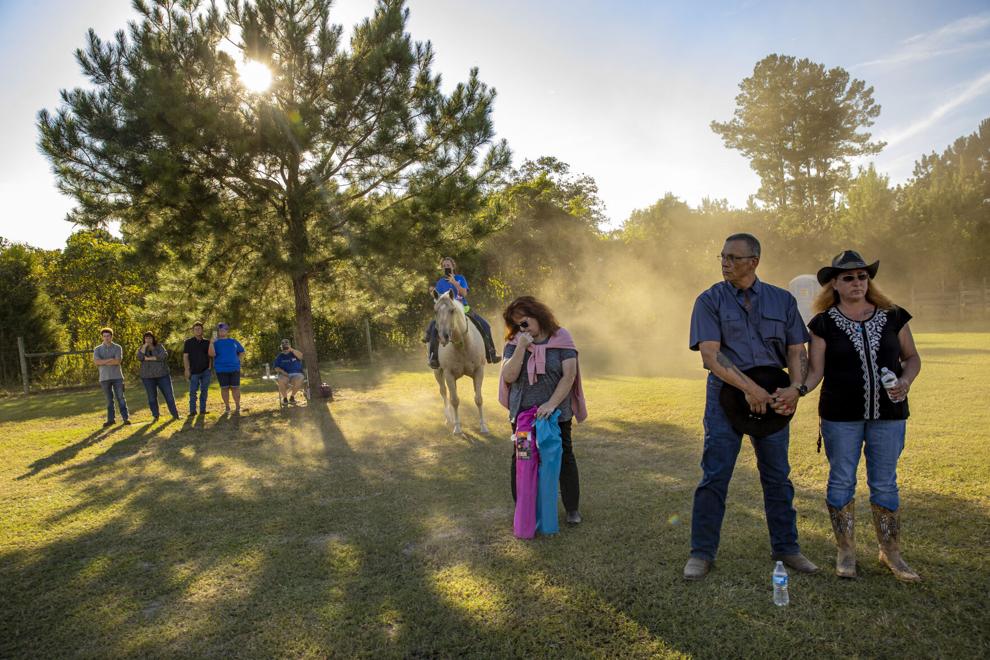
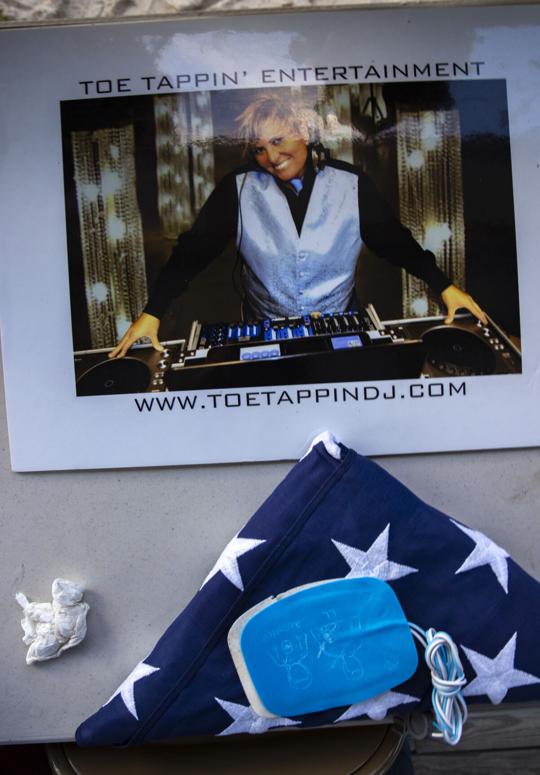
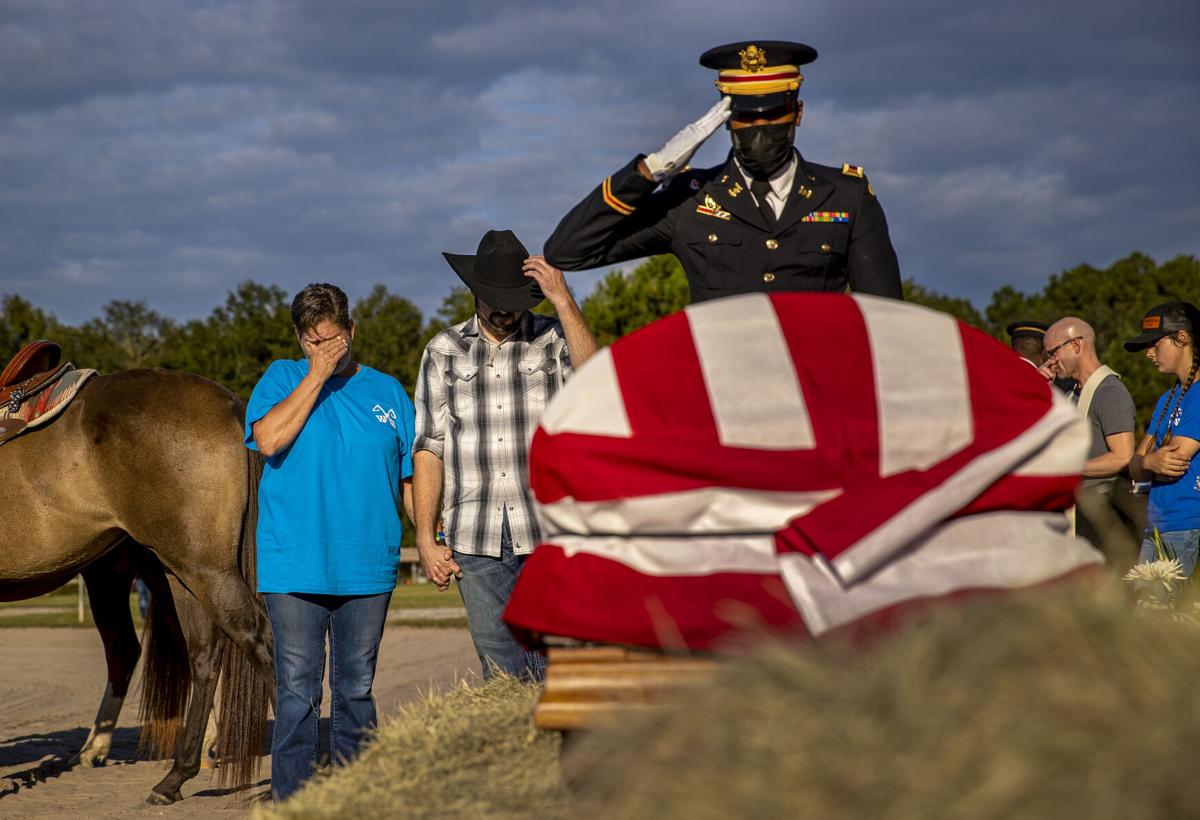
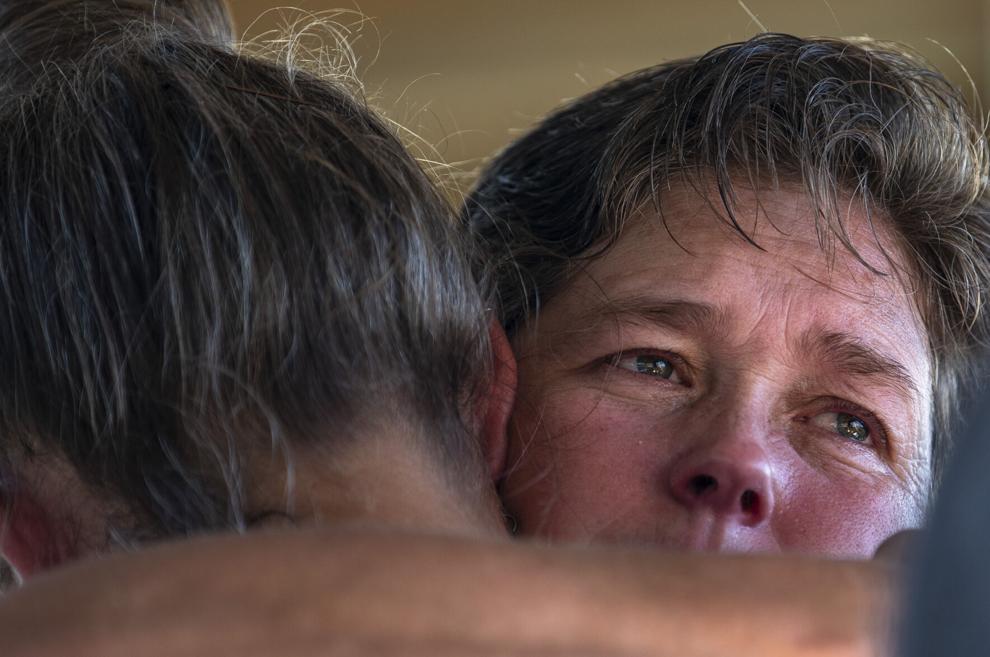
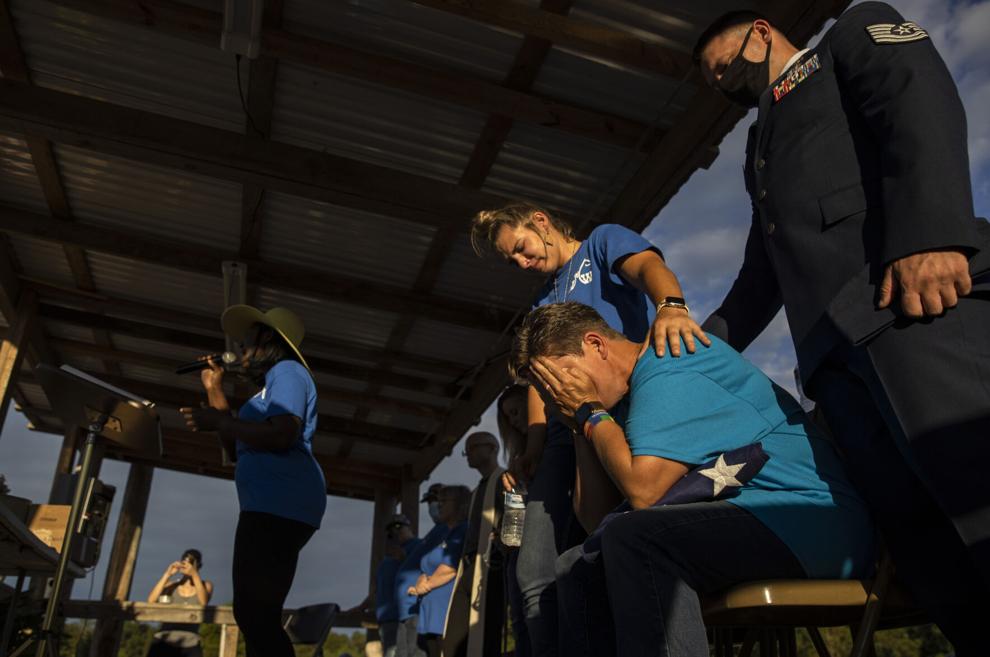
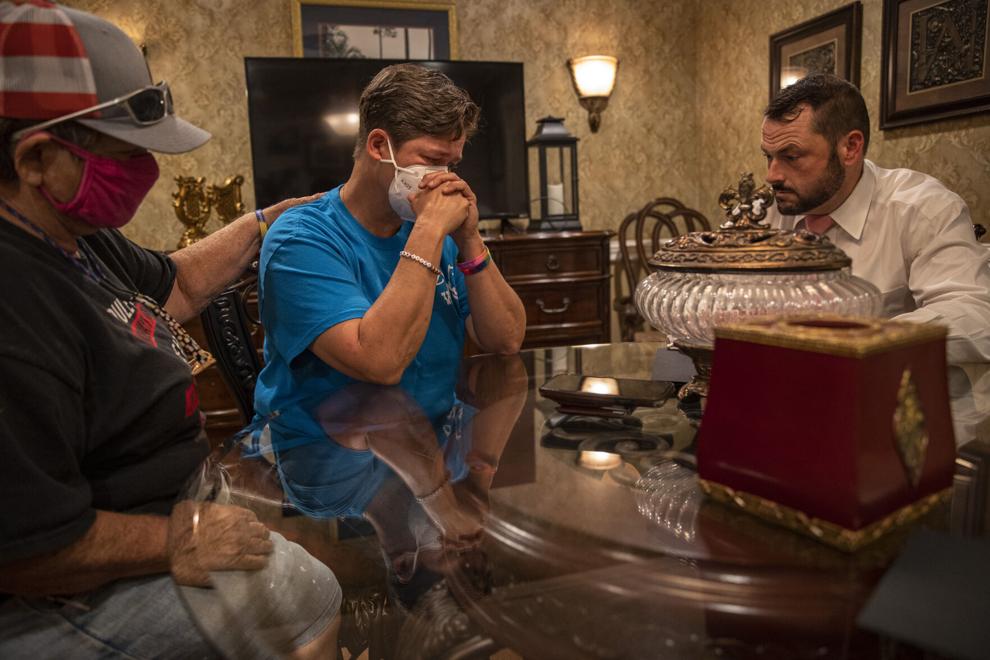
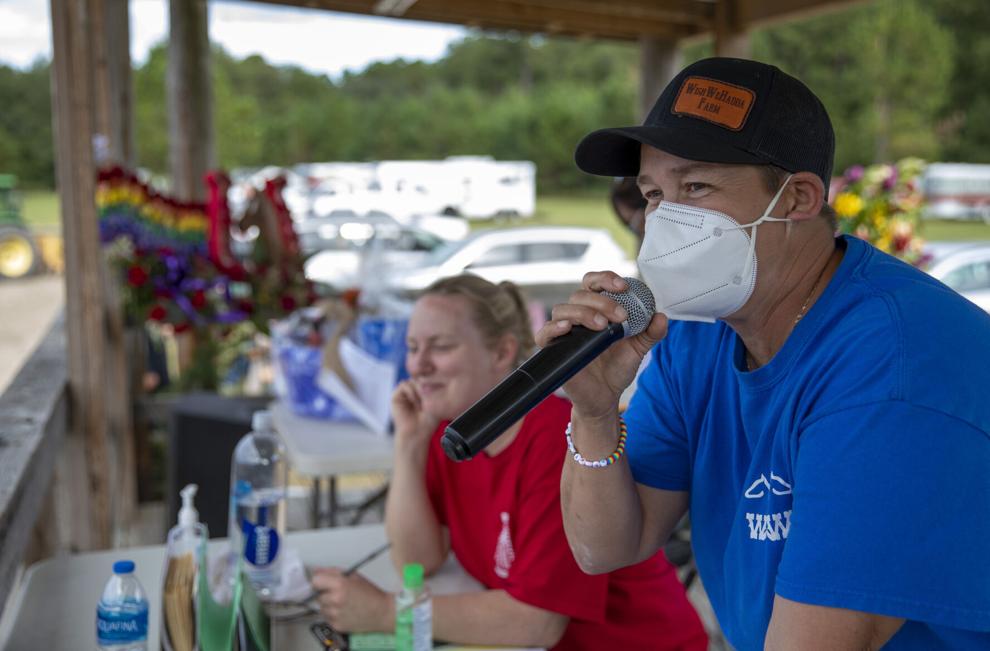
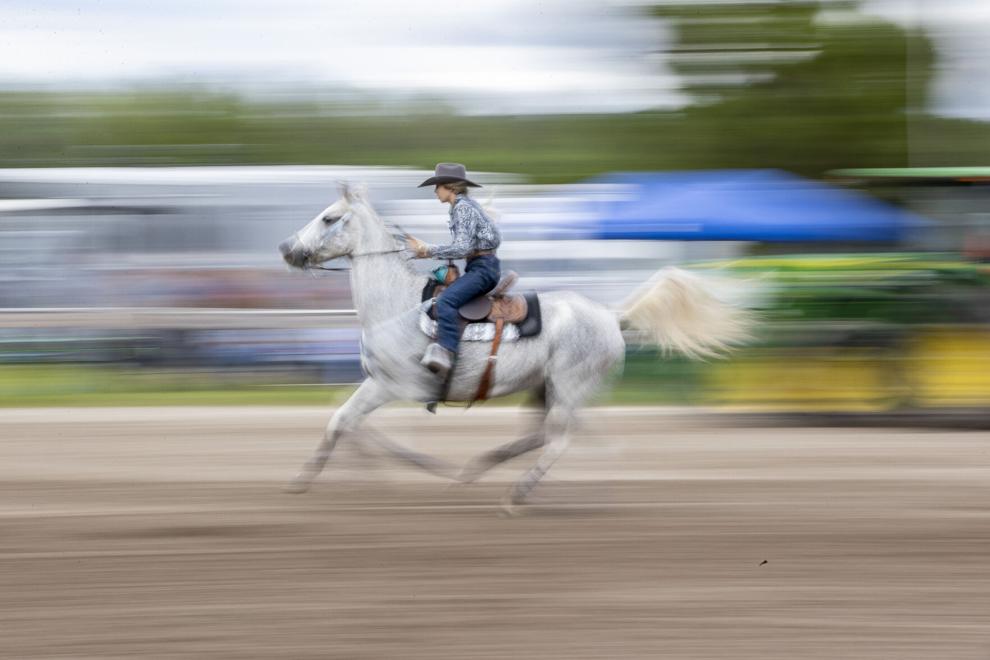
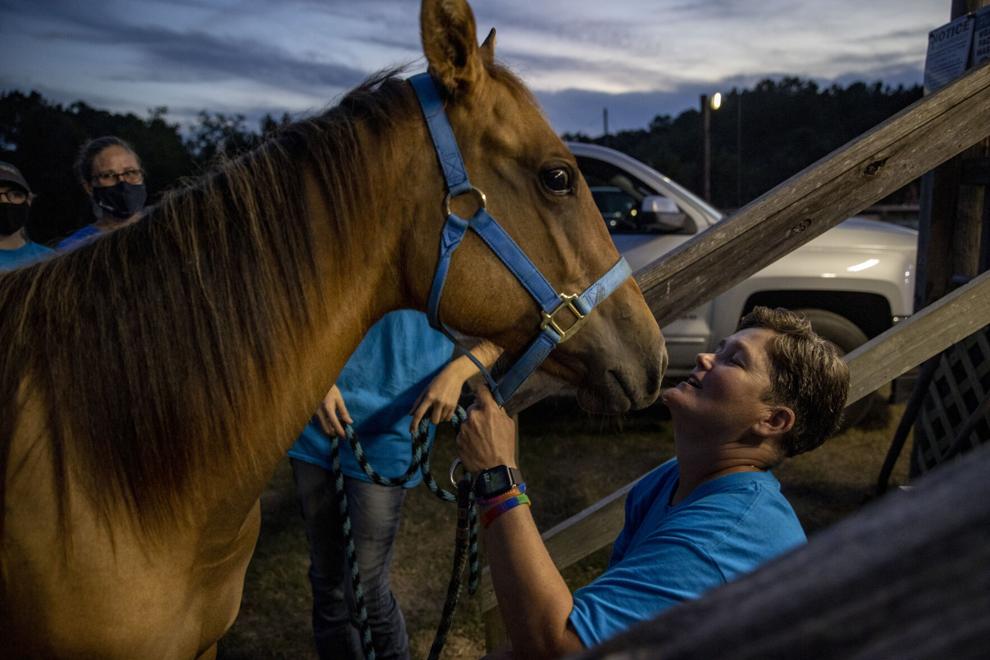
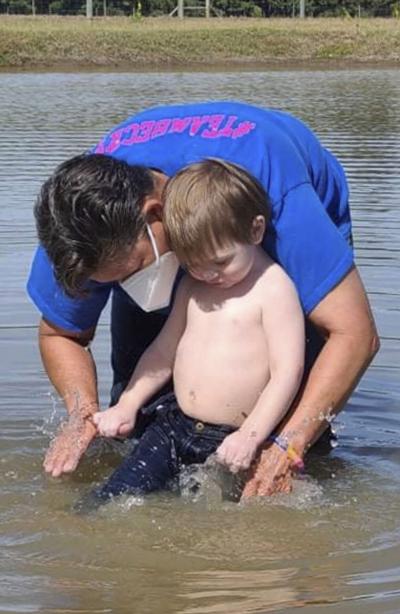

 it felt like Spring Break in a lot of ways out there
it felt like Spring Break in a lot of ways out there